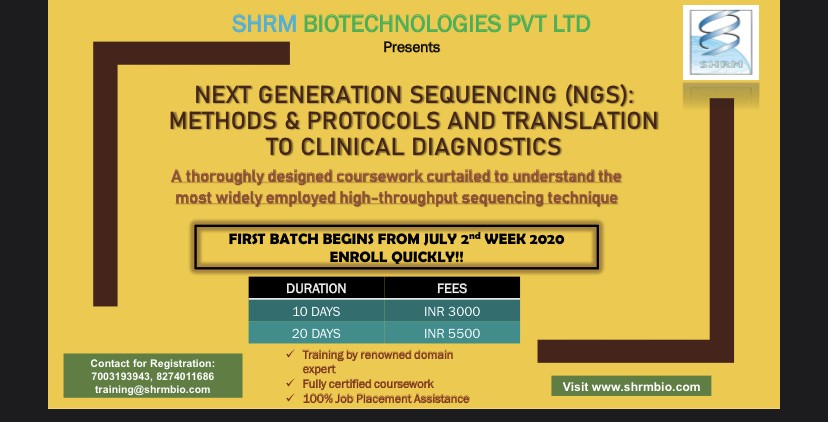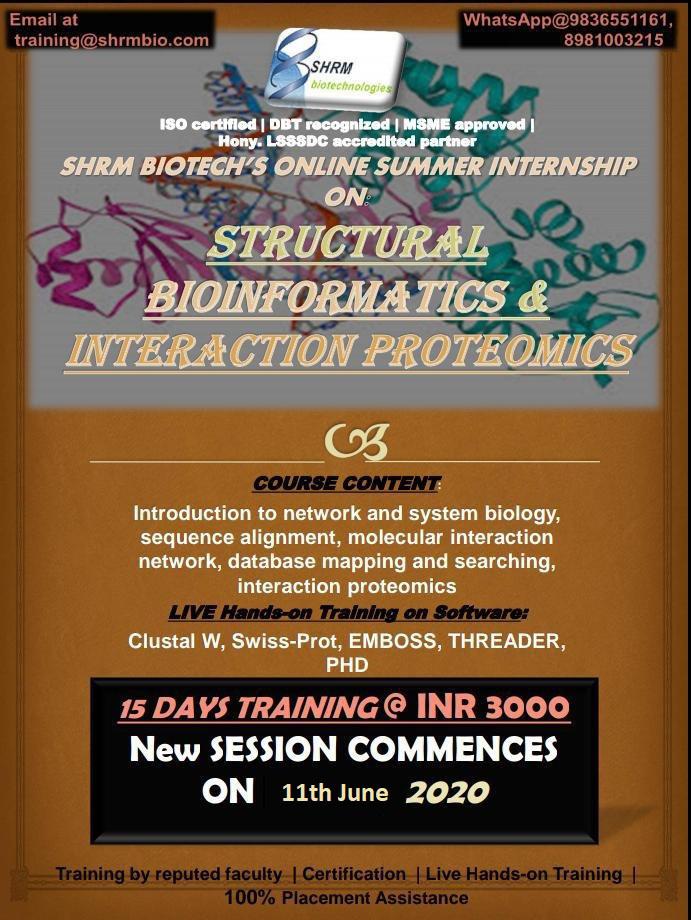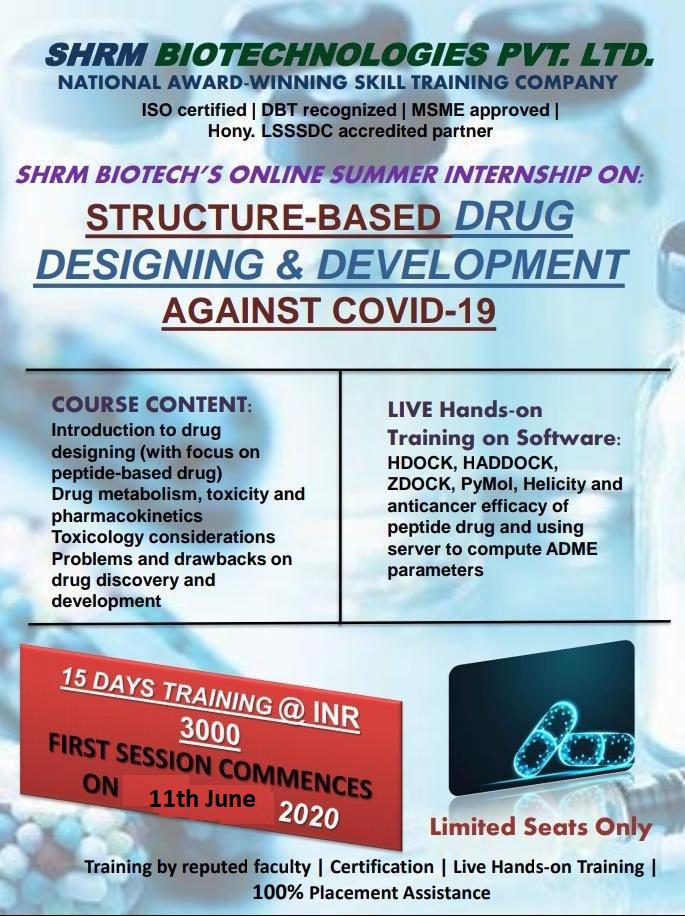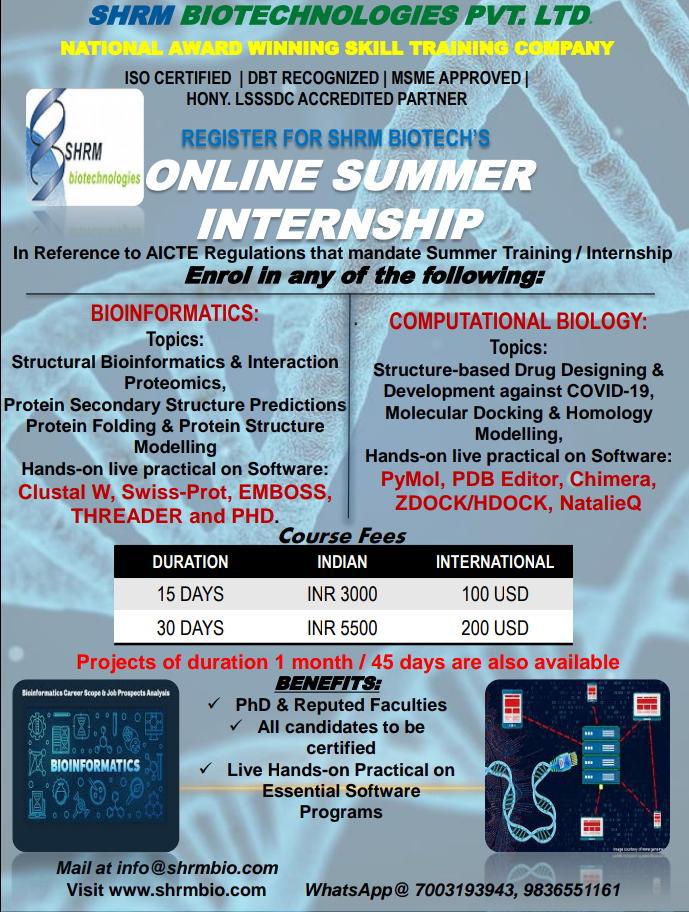SHRM Biotech has started the Online Training on the following subjects during this current situation, where all the students can utilize their time to do work from Home Internships while practising Social distance
The subjects where the students can enrol are the following:-
- Bioinformatics
- Data Science
- Computational Biology
All the students would be required to fill the said registration form, after analyzing we would email you personally with all details.
https://forms.gle/VKHFXMLjXz6DnWqz9
or Call / Whatsapp at 8981003215
All students enrolling and registering for the said trainings would be given a Certificate by the company.
Candidates can select any one of the topics / modules and register himself / herself
List of New Modules / Topics are the following:-
1. Structure based Drug Designing and Development against COVID-19.
2. Pharmacokinetics and Pharmacodynamic of the Drug
3. Molecular Docking and Homology Modelling
4. Computational Biology of Human Diseases
5. Structural Bioinformatics and Interaction Proteomics
6. Protein secondary structure predictions, Protein Folding and Protein Structure Modelling.
7. Next-Generation Sequencing (NGS) : Methods & protocols and Translation to Clinical Diagnostics
On Line Training Fees for per Module
15 Days Certified programme:- Rs 3000/- per Head
Pay Here – https://rzp.io/l/SkQnVTj
1 Month Certified programme :- Rs 5500/- per Head
Pay Here – https://rzp.io/l/TBks5M6
Online Projects are also available for a duration of 1 month / 45 Days / 2 Month onwards.
For fees Details – connect to our Admission In Charge.


FACULTY PROFILE :-
Nilanjan Banerjee is a PhD graduate student in the Department of Biophysics at Bose Institute. He received his Master’s degree in life sciences at Bose Institute with a specialization in biophysical chemistry. His research focuses on the structural biology of G-Quadruplex scaffolds and their role in cellular processes and neoplastic transformation. His current research interests include de novo anti-cancer drug design targeting the G-quadruplex structures embedded in the oncogene promoters. He also explores the computational methods to understand the errors at the molecular level that can result in functional defects and diseases. His work begins by mimicking such realistic molecular situations using computer simulations and then their events of changes in structures and encounters are witnessed and analyzed for making more specific drugs against cancer.
We also have many other distinguished Faculties from Industry, Academia who would be taking online sessions.


